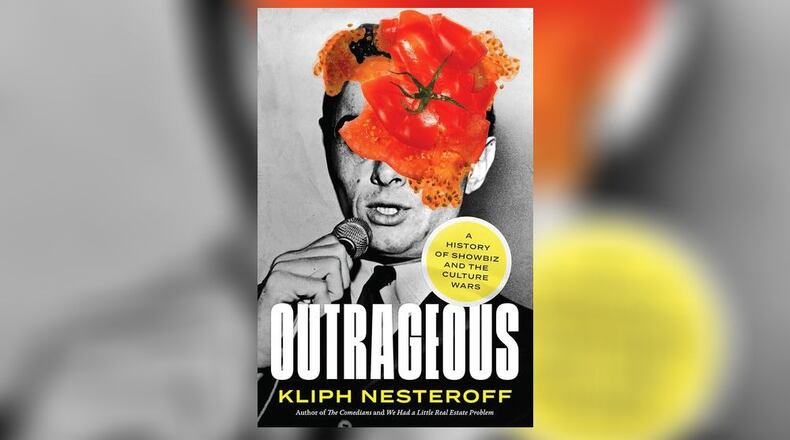One issue he scrutinizes is what humor was considered acceptable over time and when jokes were thought to be going too far. Today some people think comedians are being subjected to more censorship. Nesteroff thinks otherwise. He believes comedians are enjoying more freedom today to skewer targets of their comedy than ever before.
The author explains that today there are pundits with no connections to comedy who claim to be experts on it and that one of their “main talking points is that you can’t joke about anything anymore, and one need only look at taboos placed on certain slurs as proof.” Then he counters that opinion by stating “there’s more freedom of expression today on television than ever before.”
He takes us back through time-we meet Fatty Arbuckle, one of the biggest comedy stars of the silent film era. Arbuckle’s career ended after a young woman “died underneath the weight of his body during a wild San Francisco sex party.” We learn that another scandal happened “when lip readers discovered silent film actors, instead of mouthing dialogue, were mouthing profanity as a prank.”
“Outrageous” is jammed with tidbits like those. Censorship of racial stereotyping in comedy came in waves. He makes the fascinating observation that after “vaudeville suppressed stereotypes, radio resurrected them. The film industry phased them out, television brought them back.”
The “Amos ‘n’ Andy” humor program debuted on radio then eventually made the transition to TV. Nesteroff details how the original radio show, with white actors portraying Blacks, was praised by the white press “but some Black listeners were less charitable.”
We anticipate a presidential race this year between two aging candidates-a comedian on CBS radio once joked by rattling off the ages of Supreme Court Justices: “62, 68, 72, 75, and then yelling, ‘Bingo!.” The censors were not amused. The young Bob Hope often got in hot water during the 1930′s for mocking politicians.
By the 1970s Nesteroff notes “public opinion was always split on whether suppression of bigotry was good or bad. In theory it sounded reasonable, but it also contradicted dogmatic interpretations of free speech.” During that period many old school comedians like Red Skelton and Milton Berle voiced objections about younger comics being vulgar and using profanity in their acts.
The comedy wheel just keeps on turning. Those long gone wags of yesterday would no doubt be spinning in their graves if they witnessed what passes for comedy these days. The author’s narrative and timeline end as things were going on-line and social media got pervasive. Hopefully he’ll cover that latest era in his next book.
Vick Mickunas of Yellow Springs interviews authors every Saturday at 7 a.m. and on Sundays at 10:30 a.m. on WYSO-FM (91.3). For more information, visit www.wyso.org/programs/book-nook. Contact him at vick@vickmickunas.com.
Credit: Contributed
Credit: Contributed
About the Author

